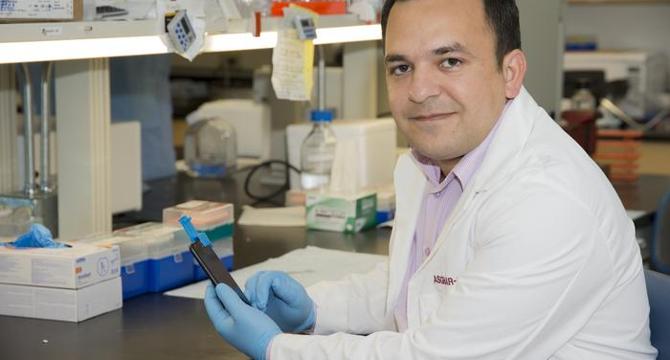Bioengineer
1d
87

Image Credit: Bioengineer
FAU Awarded $1.3 Million NIH Grant to Advance Innovative HIV Self-Testing Technology
- Florida Atlantic University (FAU) researchers are working on a groundbreaking self-testing platform for HIV to address the global need for improved diagnostics.
- Despite advancements in antiretroviral therapy (ART), effective HIV treatment faces challenges, including barriers to timely diagnostics during acute infections.
- A significant percentage of individuals with HIV are unaware of their status, highlighting the importance of accessible testing methods.
- FAU's self-testing technology, funded by a $1.3 million NIH grant, aims to revolutionize HIV diagnostics with a cost-effective and user-friendly solution.
- The new technology's anticipated cost is less than $5 per test, offering a substantial reduction compared to current methods.
- The handheld device provides automated results within 40 minutes, simplifying the testing process and improving accessibility for users.
- Leveraging advanced technologies, including microchip fabrication and microfluidics, FAU's project targets accurate HIV detection from whole blood samples.
- The technology's portability and low cost empower individuals to manage their health effectively, enhancing public health outcomes and reducing transmission rates.
- The innovative self-testing program at FAU reflects a significant advancement in global public health strategies for combating HIV and other infectious diseases.
- Collaboration with clinicians specializing in pathology and infectious diseases ensures that the self-testing development meets clinical standards and real-world healthcare challenges.
Read Full Article
5 Likes
For uninterrupted reading, download the app